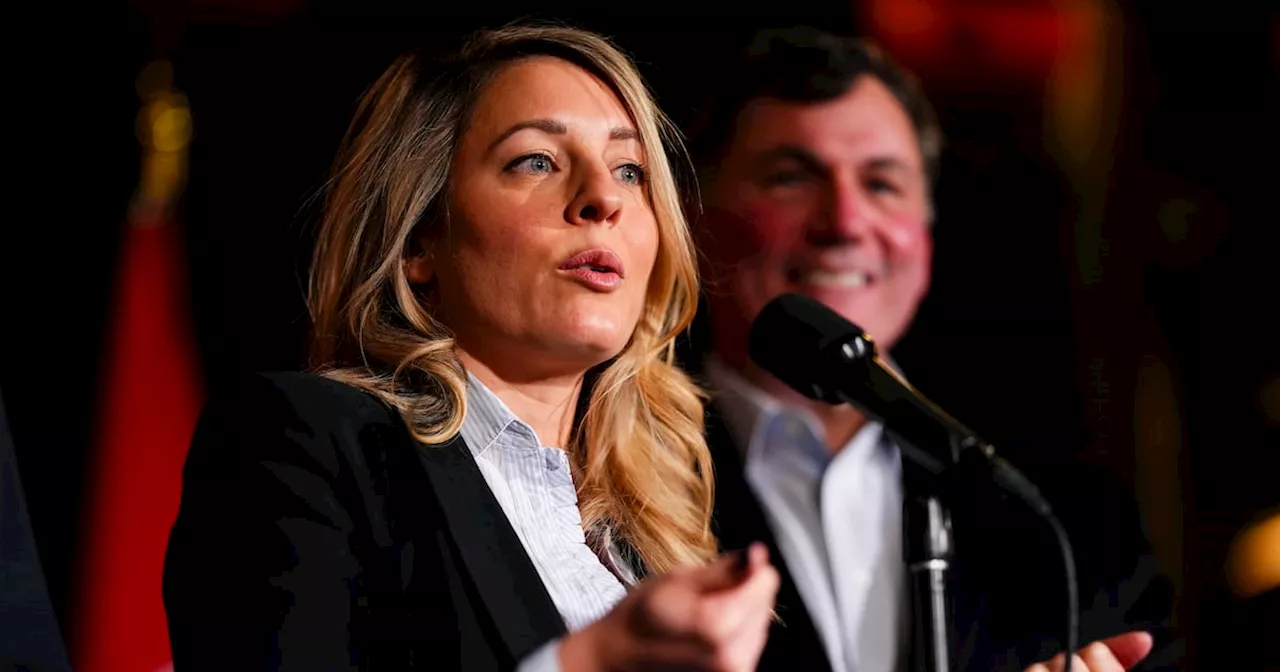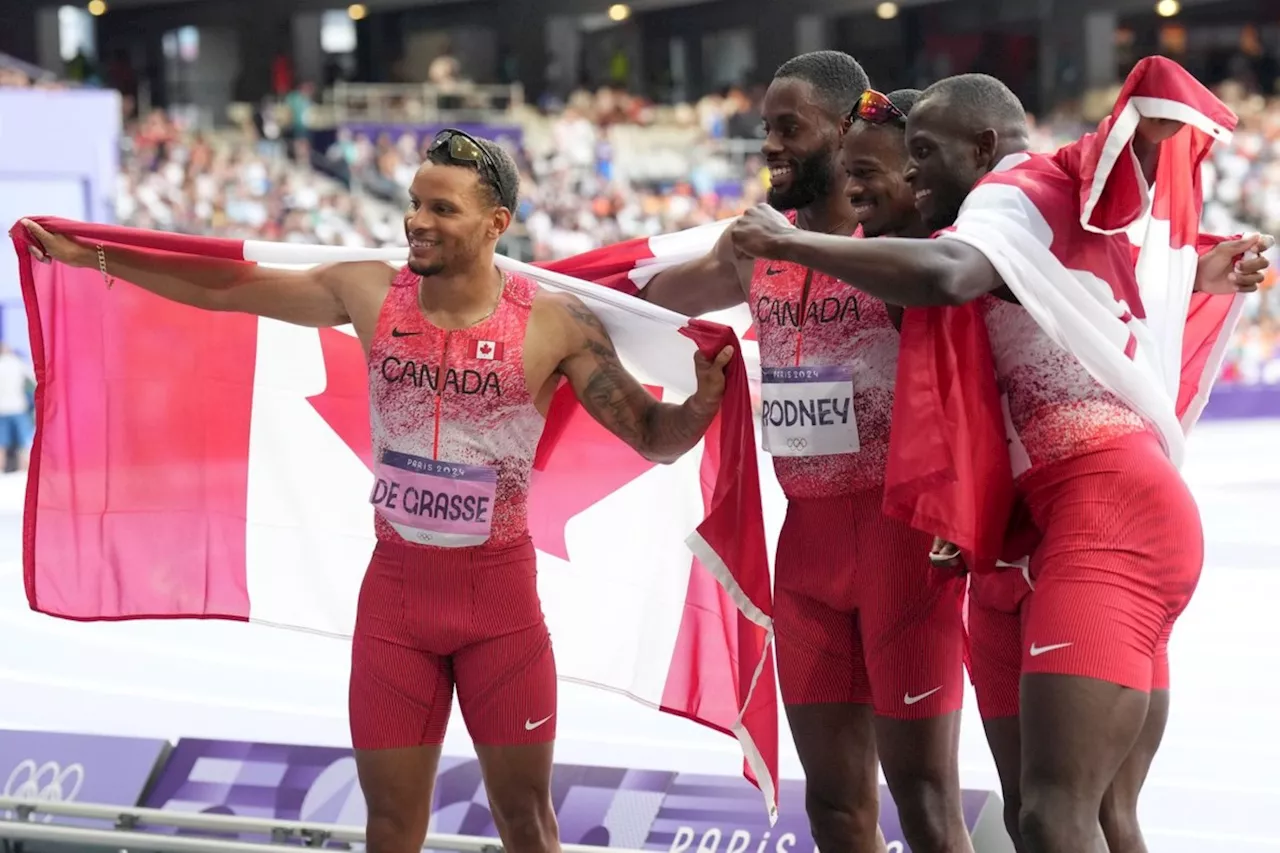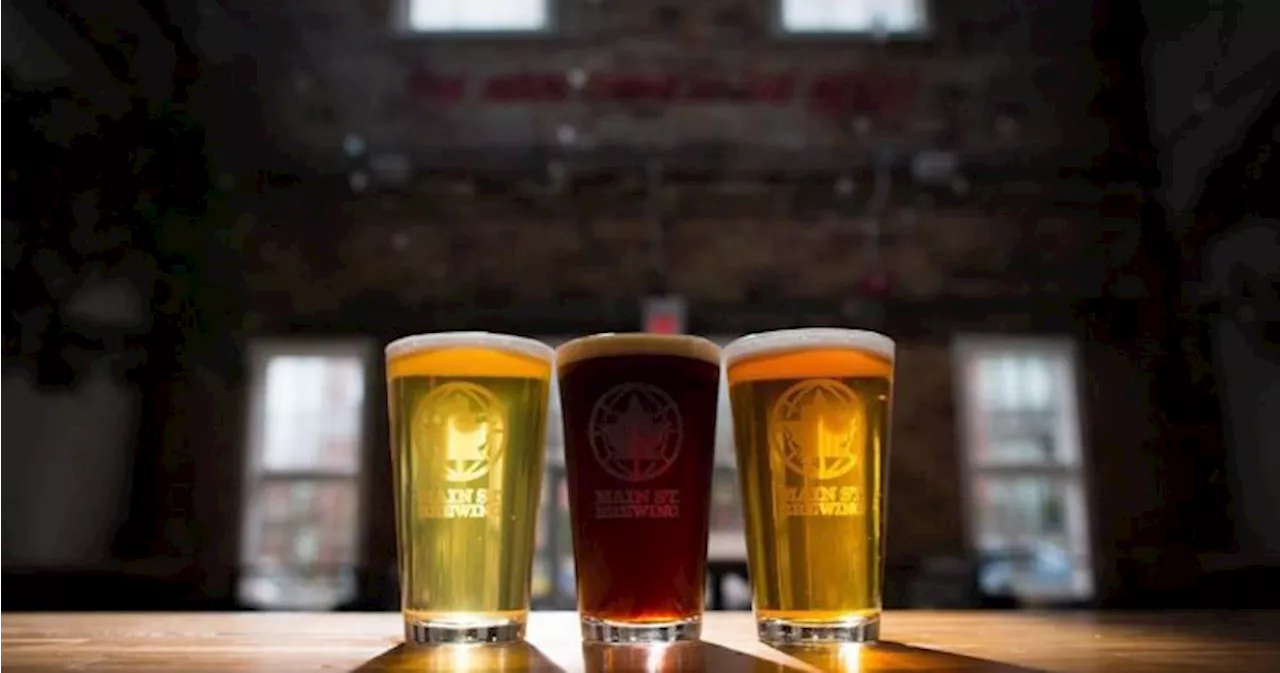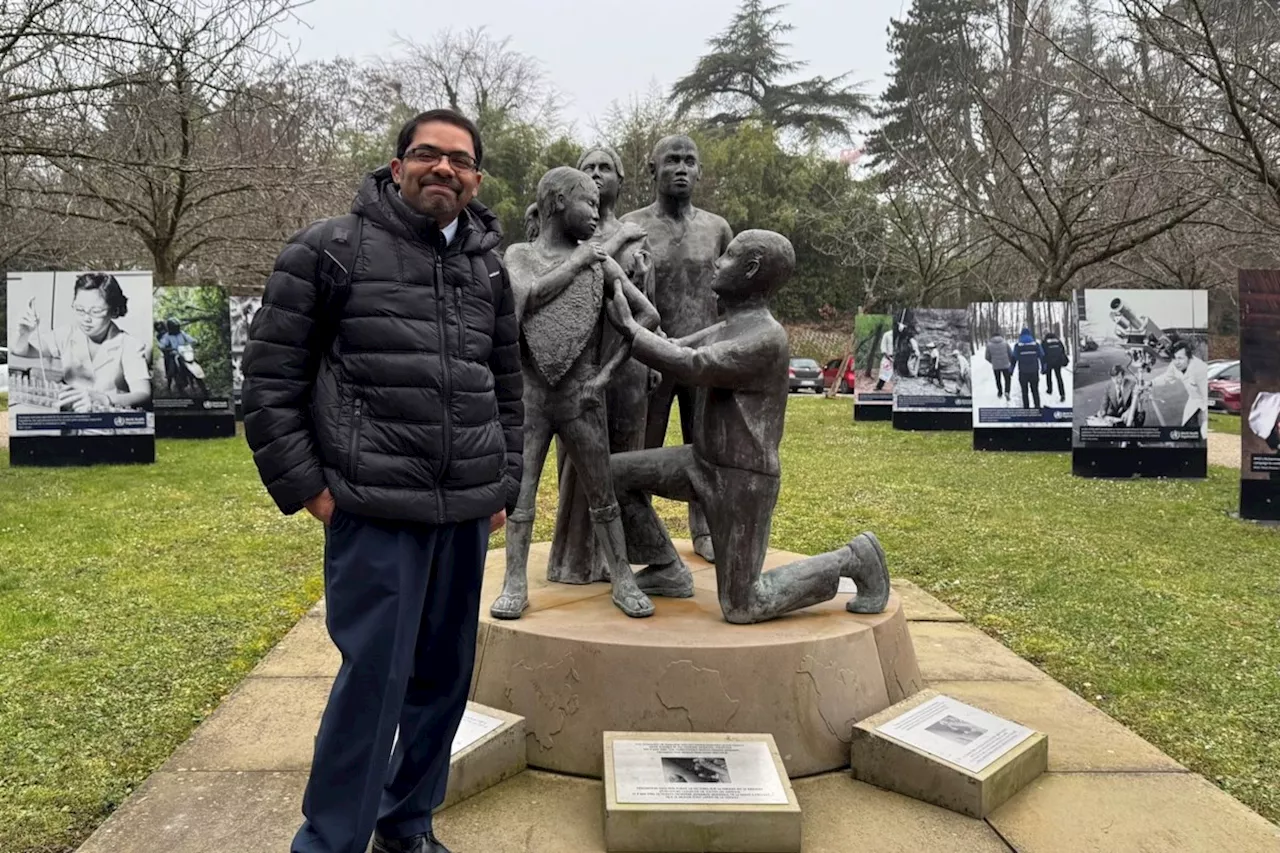President Trump's decision to withdraw the U.S. from the World Health Organization (WHO) has sent shockwaves through the global health community. Dr. Madhukar Pai, a Canadian global health expert, describes the situation as a 'massive crisis,' warning of far-reaching consequences for public health worldwide. He emphasizes the vital role of WHO funding, particularly for vulnerable nations like Canada, and urges the Canadian government to step up its support.
Staff at the World Health Organization ( WHO ) are devastated by President Donald Trump 's executive order to withdraw the U.S. from the agency, according to a Canadian global health specialist. Dr. Madhukar Pai, the Canada Research Chair in Epidemiology and Global Health , was at WHO headquarters in Geneva this week for meetings about tuberculosis when Trump signed the order on Monday.
'Everything went crazy,' said Pai, who is also a global health professor at McGill University in Montreal, in an interview from Geneva on Tuesday. 'Everybody here is absolutely stressed, devastated, and literally freaking out because some of their programs at WHO are extremely reliant on U.S. government funding,' he said. 'They're not even sure how to keep the lights on, keep their staff working, keep the programs going, so it's a pretty massive crisis.' Losing the significant amount of funding the U.S. provides the WHO — about 18% of its budget in 2023, according to the agency — is a threat to public health, Pai said. 'There are wide-ranging impacts, I would say, to all countries, not just Canada,' he said. But Canada's geographic proximity puts it at additional risk if its southern neighbor fails to respond appropriately to public health threats, Pai said. 'I think we'll be hit, for example, if there is a new outbreak and (the) U.S. is simply not engaged with WHO or the global response. And if that outbreak spreads within the U.S. ... I think Canada will be the first one to be impacted given the movement of population between our two countries, trade and our fairly open borders.' One current threat is H5N1 avian flu — a highly pathogenic strain of influenza that has wiped out poultry farms in both Canada and the U.S., he said. Although the illness has primarily infected U.S. farm workers with mild symptoms, one senior who was exposed to a backyard flock in Louisiana died of the virus earlier this month. Canada has had one confirmed human case of H5N1 — a teenage girl in B.C. who became severely ill and was hospitalized. Pai is calling on the Canadian government — along with other G7 countries — to 'step up' and help fill the funding void that will be left by the U.S., both through financial contributions to the WHO as well as by taking a leadership role in global health. But he noted Canada's own political turmoil — including the Liberal leadership race to replace Prime Minister Justin Trudeau and Trump's threat to slap punishing tariffs on the country — could make that unlikely. 'Our leaders are probably more worried about the tariffs than they are worried about anything else at this stage,' Pai said. Dr. Prabhat Jha, founding director of the Centre for Global Health Research at Unity Health Toronto, said he would also like to see the Canadian government increase support for the WHO. But he said the country that will hurt the most from Trump's withdrawal is the U.S. itself. 'A lot of it is symbolism ... Trump basically, you know, giving the middle finger to the world,' Jha said in an interview from Sierra Leone on Tuesday. 'In the end, it's going to hurt Americans because they lose the (health) intelligence, they lose the access to the global networks if there's another pandemic,' he said. '(The WHO) won't share the information as easily with the U.S. as they would otherwise.' A bigger concern, Jha said, is the message the U.S. pullout sends about nationalism. '(It says) basically that you don't need to have global co-operation on disease, which is absolutely stupid and completely self-defeating.' Jha said the 'silver lining' of Trump's move is that it could spark 'reform' to make the WHO less dependent on the U.S. 'It means the world has to co-operate more, even if America goes it alone.' In a statement issued Tuesday, the World Health Organization said it 'regrets' Trump's decision. 'We hope the United States will reconsider and we look forward to engaging in constructive dialogue to maintain the partnership between the USA and WHO, for the benefit of the health and well-being of millions of people around the globe,' it said. Trump's executive order claimed the U.S. was cutting ties with WHO for reasons including alleged 'mishandling of the COVID-19 pandemic' and 'unfairly onerous payments.' Pai noted that the order comes as vaccine-preventable diseases are on the rise — including increasing cases of measles in both the U.S. and Canada. In addition to losing WHO's leadership on vaccination, he also worries about the 'anti-vaccine rhetoric' from some of Trump's picks for appointees to leadership positions, Pai said, noting increased vaccination efforts are urgently needed. 'It’s actually pretty shocking for me, stunning for me, to see that in 2025 we're dealing with measles in Canada or (the) U.S.,' he said. 'We cannot go back in time to a period where kids were getting paralyzed with polio or dying of measles and whooping cough.
WHO Trump Withdrawal Public Health Global Health Crisis Funding Canada Nationalism COVID-19 Vaccine Preventable Diseases H5N1 Avian Flu
Canada Latest News, Canada Headlines
Similar News:You can also read news stories similar to this one that we have collected from other news sources.
 Trump Hints at February Tariffs on Canadian Goods, While Canadian Politicians Back Away from Carbon PricingThis article covers several news stories from The Canadian Press. It starts with US President Donald Trump's suggestion of 25% tariffs on Canadian imports by February 1st, despite earlier indications of a study on trade practices. The article also discusses the three frontrunners in the Liberal leadership race shifting away from the Liberal government's carbon pricing policy. Other news covered includes Statistics Canada's upcoming release of December's inflation figures, thawing permafrost in the Arctic tundra, and a focus on the benefits of small care homes for long-term residents.
Trump Hints at February Tariffs on Canadian Goods, While Canadian Politicians Back Away from Carbon PricingThis article covers several news stories from The Canadian Press. It starts with US President Donald Trump's suggestion of 25% tariffs on Canadian imports by February 1st, despite earlier indications of a study on trade practices. The article also discusses the three frontrunners in the Liberal leadership race shifting away from the Liberal government's carbon pricing policy. Other news covered includes Statistics Canada's upcoming release of December's inflation figures, thawing permafrost in the Arctic tundra, and a focus on the benefits of small care homes for long-term residents.
Read more »
 Trump to Implement Tariffs on Canadian Goods, Prompting Canadian ResponseU.S. President Donald Trump's inauguration speech signaled his intention to impose tariffs on Canadian goods, reversing earlier reports that suggested a delay. Canadian officials have expressed preparedness for this move, outlining plans to defend Canadian interests and jobs.
Trump to Implement Tariffs on Canadian Goods, Prompting Canadian ResponseU.S. President Donald Trump's inauguration speech signaled his intention to impose tariffs on Canadian goods, reversing earlier reports that suggested a delay. Canadian officials have expressed preparedness for this move, outlining plans to defend Canadian interests and jobs.
Read more »
 Canadian Men’s 4x100 Relay Team Wins Canadian Press Team of the Year AwardThe Canadian men's 4x100-meter relay team, led by Andre De Grasse, won gold at the 2024 Paris Olympics and has been awarded The Canadian Press team of the year award.
Canadian Men’s 4x100 Relay Team Wins Canadian Press Team of the Year AwardThe Canadian men's 4x100-meter relay team, led by Andre De Grasse, won gold at the 2024 Paris Olympics and has been awarded The Canadian Press team of the year award.
Read more »
 Canadian Sports News Roundup: Taylor's Triumph, Canadian Curling Trials, and MoreThis roundup covers a range of Canadian sports news, including Nick Taylor's victory at the Sony Open, updates on the Canadian mixed doubles curling trials, and more.
Canadian Sports News Roundup: Taylor's Triumph, Canadian Curling Trials, and MoreThis roundup covers a range of Canadian sports news, including Nick Taylor's victory at the Sony Open, updates on the Canadian mixed doubles curling trials, and more.
Read more »
 Aritzia, Canadian Tire, Lululemon among Canadian retailers shifting production outside ChinaShoppers come and go from a Canadian Tire store in Ottawa on Aug. 11, 2023.
Aritzia, Canadian Tire, Lululemon among Canadian retailers shifting production outside ChinaShoppers come and go from a Canadian Tire store in Ottawa on Aug. 11, 2023.
Read more »
 Canadian Website Calculates Alcohol Health Risks Amid Contradictory Government GuidelinesA new website launched by the Canadian Institute for Substance Use Research allows users to calculate their health risks based on alcohol consumption, using updated guidelines from the Canadian Centre on Substance Use and Addiction (CCSA). However, these guidelines differ from Health Canada's recommendations, creating confusion for the public.
Canadian Website Calculates Alcohol Health Risks Amid Contradictory Government GuidelinesA new website launched by the Canadian Institute for Substance Use Research allows users to calculate their health risks based on alcohol consumption, using updated guidelines from the Canadian Centre on Substance Use and Addiction (CCSA). However, these guidelines differ from Health Canada's recommendations, creating confusion for the public.
Read more »
